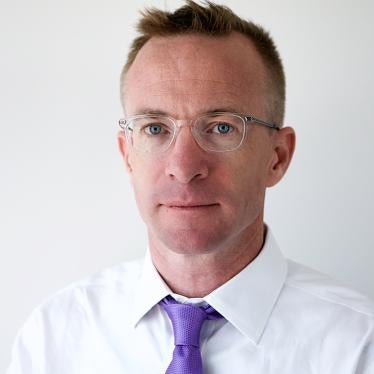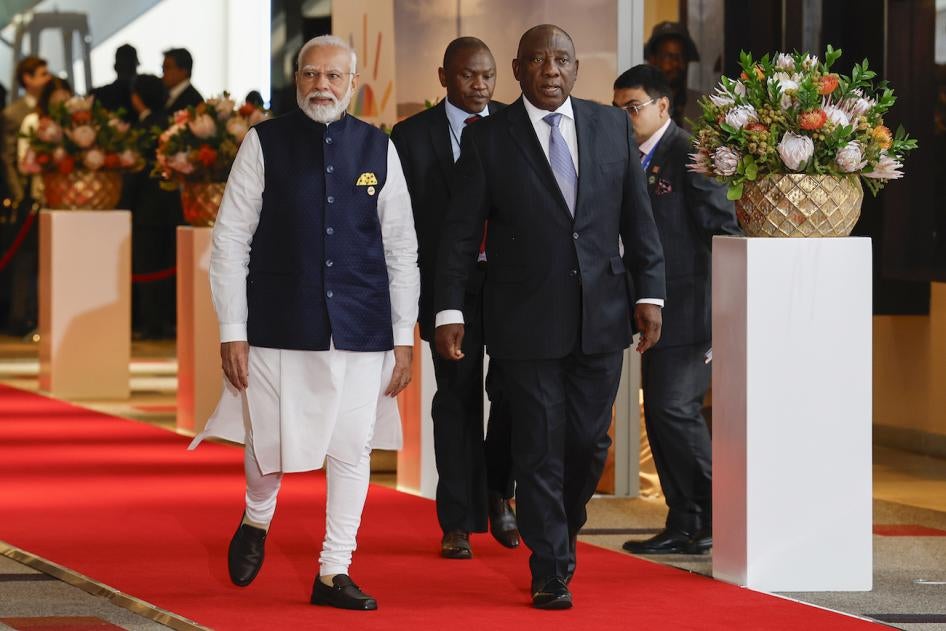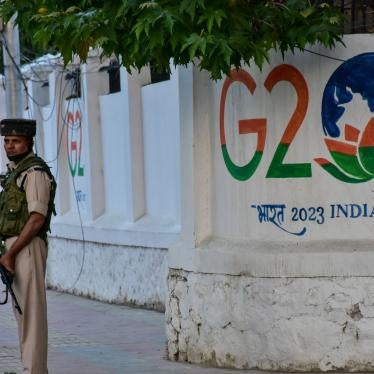President Cyril Ramaphosa visits India for the Group of 20 meeting this week. South Africa seems to be riding high after hosting a BRICS Summit with India’s leader, Narendra Modi, China’s Xi Jinping, and an expanded list of leaders that generated commentary worldwide. Before the summit, South Africa’s ambassador to BRICS spoke of the bloc essentially ending “apartheid” against the Global South. Headlines read of a new “alternative world order” and declared “BRICS is dynamic. The G20 is not.”
Lacking significant substance, both blocs seem more like theatrical stages on which leaders project “vibes”. Indeed, India’s foreign secretary recently boasted that at the BRICS summit, during which India successfully landed a spacecraft on the moon, Ramaphosa wanted to sit next to Modi so that “good vibes” would rub off on him.
Even from the theatrical perspective, however, it’s hard to see what the vibes at the G20 might be. Modi believes that “India and India’s G20 will act as a catalytic agent for the new global order”, and “help shape policies which shape the future of humanity”, while “reflecting the voice and concerns of the Global South”.
Goals like these, vague as they are, cannot be achieved unless leaders like Ramaphosa and Modi acknowledge the “elephants” on the international stage: neither the BRICS nor the G20 can reach meaningful areas of consensus because both contain authoritarian governments with unelected leaders, manifestly motivated to promote only their aims and interests, and that routinely engage in brutal human rights abuses and other violations of international law.
Instead of suggesting a “new global order” within blocs with little cohesion, governments that want to promote the interests of “humanity” should focus on reaffirming and refining international norms meant to create order and prevent conflict and human rights abuses. South Africa and India have democratic systems capable of upholding and promoting human rights and being responsive to populations. Both countries’ leaders ought to be bringing that perspective to the G20.
Rights abuses
No democracy, however, can speak effectively on human rights issues without admitting its own problems. Human Rights Watch’s reporting focuses not only on autocratic G20 members such as China, Saudi Arabia, and Russia but also India, Brazil, Japan, the US, and other democracies – including South Africa.
In India, civil and political rights have sharply deteriorated under the Modi administration, especially for groups facing persecution because of their caste, religion, ethnicity or political belief, and for civil society advocates, journalists and human rights defenders critical of the government. Human Rights Watch has been calling on all leaders visiting India to press Modi to publicly condemn communal violence targeting Muslim, Christian and other religious minorities, and urging him to end politically motivated crackdowns. India needs to cease overbroad and indiscriminate internet shutdowns.
As for international human rights issues at the G20, unrepentant rights abusers are making consensus almost impossible.
South Africa should, however, press for agreement on joint action in Afghanistan, where the Taliban’s severe restrictions on women’s rights have been widely condemned by governments the world over, including the 57-nation Organisation of Islamic Cooperation.
The summit could also be an opportunity for South Africa and India to focus on thematic areas where substantive agreements could have critical consequences for human rights, including debt crises, social protection programmes, food security, climate change, and internet freedom.
Both countries would be in a good position to lead at the G20 to reach consensus on the world’s sovereign debt crisis. Almost 40 low-income countries were in or near debt distress earlier this year, according to the International Monetary Fund (IMF). The IMF is currently imposing austerity measures on many of these countries as a condition of support — despite a well-documented history that these policies exacerbate poverty and inequality and undercut rights.
South Africa should join others at the G20 to support universal social protection systems, and not means-tested systems that base eligibility for support on income, wealth or other narrow indicators of poverty, and that often leave out many people who need the help most. Universal programmes have been shown to be most effective at reducing poverty and inequality, promoting social cohesion and solidarity, and improving economic resilience.
South Africa should also be publicly calling on the G20 to better address soaring global food prices. And on climate change, Ramaphosa should press other G20 governments to accept what Modi has often said: that while “there are those who are more responsible for the current situation than others”, the world has to act together to handle the “reality of human impact on the planet”.
Promoting human rights and social justice requires substantive agreements and decisions on pressing issues. It cannot just be about vibes.









